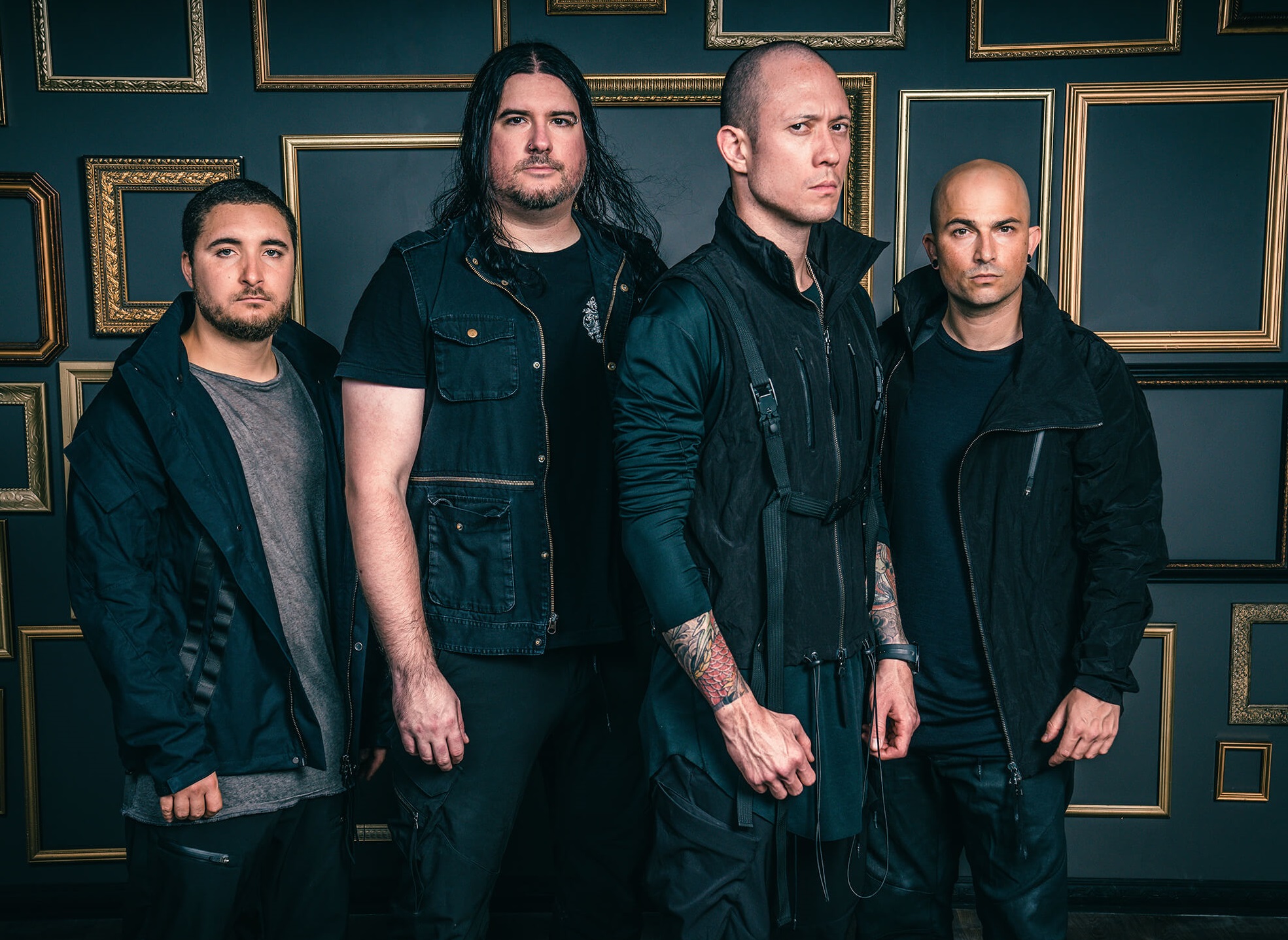Trivium Merch
Ascendancy (2004–2006)
In 2004, Trivium recorded its second album, Ascendancy, at Audiohammer Studios and Morrisound Recording in Florida. Produced by Heafy and Jason Suecof, the album was released in March 2005. The album debuted at No. 151 on the Billboard 200 and at No. 4 on the Top Heatseekers chart. Allmusic reviewer Johnny Loftus stated on Ascendancy that Trivium are a “ridiculously tight quartet, unleashing thrilling dual guitar passages and pummeling kick drum gallops as surely as they do melodic breaks and vicious throat screams,” and Rod Smith of Decibel magazine praised “Smith’s impeccably articulated beats, bassist Paolo Gregoletto’s contained thunder, and, especially, Heafy and guitarist Corey Beaulieu’s liquid twin leads.” The album was also recognized as “Album of the Year” by Kerrang! magazine. Later in 2007, the band received their first gold record in the UK for more than 100,000 sales.
The band opened for Killswitch Engage, Iced Earth, Fear Factory, and Machine Head, who were one of Heafy’s largest influences. Trivium also played at Road Rage 2005 and Ozzfest. Ascendancy was re-released in 2006 with four bonus tracks and a DVD containing all of the band’s music videos and live footage.
Musical style
Trivium has been described as a heavy metal band, and more specifically as metalcore, thrash metal, progressive metal, melodic death metal, power metal, death metal, alternative metal and groove metal.
Trivium’s music mixes “soaring” and “crushing” riffs, dual guitar harmonies, double bass drum patterns and occasional blast beats and breakdowns that one can expect from the metalcore genre. Vocally Trivium combines both singing along with heavy screaming and growls. Trivium is one of the notable New wave of American heavy metal acts, having been referred to as one of “big four” bands of the movement, along with Lamb of God, Avenged Sevenfold and Slipknot.
Their style has evolved over the years: from their earliest work on Ember to Inferno right through to In Waves, there is a clear thrash influence from Metallica and Machine Head, as well as a melodic death metal influence from early In Flames.
The Crusade is a much more thrash-oriented album, and the lyrical content was also different in direction, citing current affairs such as famous killings. In Autumn 2008, Trivium released Shogun, which has a heavy Japanese influence on its title track as well as the first single release, “Kirisute Gomen,” which translates to “authorization to cut and leave.” Acknowledging Matt Heafy’s Japanese heritage, the album was also described more favorably as having more of their own style, as previous references to Trivium sounding like Metallica had been made on the back of The Crusade. The Crusade made sparing use of seven-string guitars, which were featured heavily on Shogun.
In Waves, the band featured a sound closer to Ascendancy than The Crusade and Shogun. The guitar tuning, instead of being in drop D, went half a step lower to drop C#. The album has several songs, such as “Built to Fall” or “Dusk Dismantled,” featuring mostly clean vocals or solely screamed vocals from Matt Heafy. Seven-string guitars once again appeared on Silence in the Snow tuned to B-flat and have since been used in subsequent albums along with the previously used six-string drop C tuning. Trivium has also used Drop G# tuning on seven-string guitars on the songs “Dead and Gone” and “Beneath the Sun” from Silence in the Snow, “The Wretchedness Inside” from The Sin and the Sentence, and “Bleed Into Me” from What the Dead Men Say.
